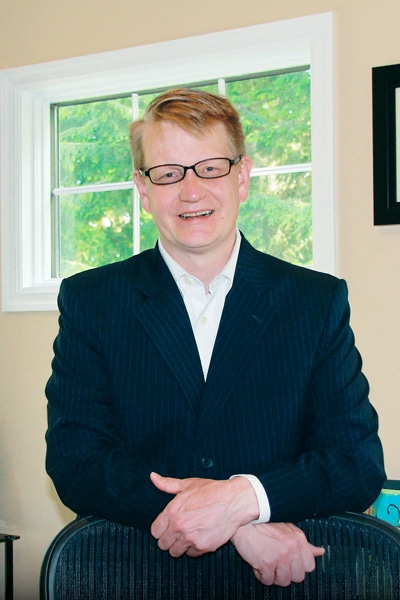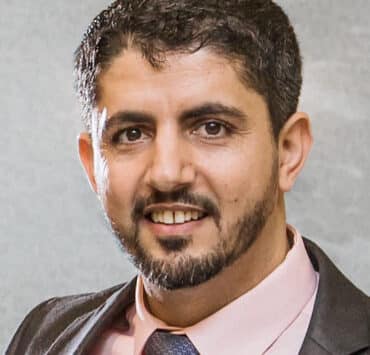Mallinckrodt Pharmaceuticals is a 150-plus-year-old company that needed help transitioning to a twenty-first century world both from a legal and a leadership perspective. Enter Lars Taavola, who joined the company during August of 2020 as vice president and chief intellectual property counsel, focused on refining Mallinckrodt’s IP strategy.
The fact that the company was also managing bankruptcy at the time due to various litigations just added to the challenge that awaited him. But less than a year later, Taavola has already made significant headway into restructuring the IP department and helping to reenergize the patient population.
“We needed to become a more entrepreneurial-minded company,” he explains. “I went to the business groups and others within the organization to explain how we needed to start thinking about our IP and how we needed to be a bigger part of the organization, rather than just simply a service provider. I think sometimes we took a very academic view of, ‘Should we get a patent, or should we not get a patent?’ Instead of saying, ‘How is our role going to contribute to our ability to improve patients’ health and the health of the business?’”

Taavola knew he wanted to be a patent lawyer in high school, though it wasn’t the direction he followed right out of college. He worked as a chemical engineer for a while, but quickly realized that they only put chemical plants in remote locations, so while sitting by himself in Lake Jackson, Texas, he made the decision to answer the calling to law that had been in the back of his head.
After graduating from Boston University School of Law in 2002, he took a job at Kenyon & Kenyon, and because he had a chemical engineering degree, he was put on a pharmaceuticals project and started learning a great deal about that industry. His career progressed to the point where he started running IP departments, specializing in pharmaceuticals.
Joining Mallinckrodt during the pandemic may seem like an odd choice, but there were several reasons he wanted the job.
“One, my prior company was going through a lot of changes,” he explains. “Then I met the people at Mallinckrodt and there was no way I could turn it down. The people are of high quality and it’s very much a patient- and employee-centered company.”
One of the keys to his early success at the company was getting everyone on board about the importance of IP, especially the scientists, who needed to inform the IP team about any clinical trials or other things in the works so it could get patents ready.
Taavola’s team consists of two patent attorneys and a paralegal in-house along with an outside counsel team. Being relatively new to the company, the biggest challenge is still just having everyone know who he and his team are and what they do.
“I’m in charge of all of our intellectual property, primarily for the brands business,” he explains. “For the generics business, we do make some finish dosages—some tablets and other things. But primarily, I investigate our patent portfolio. I’ve identified some gaps, and the team is working on changing the mentality moving forward. A commercial colleague might not think anyone is going to care about something simple—I need to show them why something is more than a simple idea.”
One of Taavola’s favorite examples to illustrate his point is Keurig Coffee, which made money because they patented the little container that the coffee came in.
“It’s kind of reminding people that we do have an impact on the business, and we need to remember who the overall audience is,” he says. “The biggest initiative I’ve done is getting IP involved throughout the process, which is an ongoing thing I am still working on.”
“A commercial colleague might not think anyone is going to care about something simple—I need to show them why something is more than a simple idea.”
That means in product development, talking with the clinical regulatory team regularly and being a “fly on the wall” that sees everything and will buzz when it’s necessary to plan out the patent strategy. In other words, he aims to help the scientists think creatively to see what a savvy invention could be, even if they might not think it is something worthy of a patent.
“Mallinckrodt is a very old company and also a very scientific company, so when they look at a patent, they always go to the most scientific aspect,” Taavola says. “What’s interesting about patent law is sometimes the most scientific aspect is not even patentable. We need to get people comfortable with the ideas part and what we can do there.”
Kate Doty and Morgan Kirley, partners at Polsinelli, appreciate Taavola’s fresh perspective to help expand his company’s patent portfolio protection. “You can tell that Lars values IP protection and that expanded patent filings and building value are a real priority for him,” says Kirley. “We have a lot of great brainstorming sessions, and Lars really looks at the patent issues from all angles.”
Currently, Mallinckrodt is developing two new products they are hoping will be approved. One is for deep partial thickness burns, and the other is for people with severe liver disease.
By next year, the company is anticipating emerging from bankruptcy, partly on the strength of its new patents, and Taavola hopes IP is viewed as both a legal and commercial function throughout the organization.
“I want people thinking about looping IP in, and I know we’re not there yet, but it’s becoming less of an afterthought,” he says. “When 2022 starts and I’m getting too many emails from people across the organization, that’s how I know we’ve succeeded.”
Knobbe Martens and attorneys Ryan Melnick and Jane Dai are proud to help Mallinckrodt protect its worldwide intellectual property around innovative therapies for patients with severe and rare diseases. We congratulate Lars Taavola on this well-deserved recognition of his expertise and leadership.


